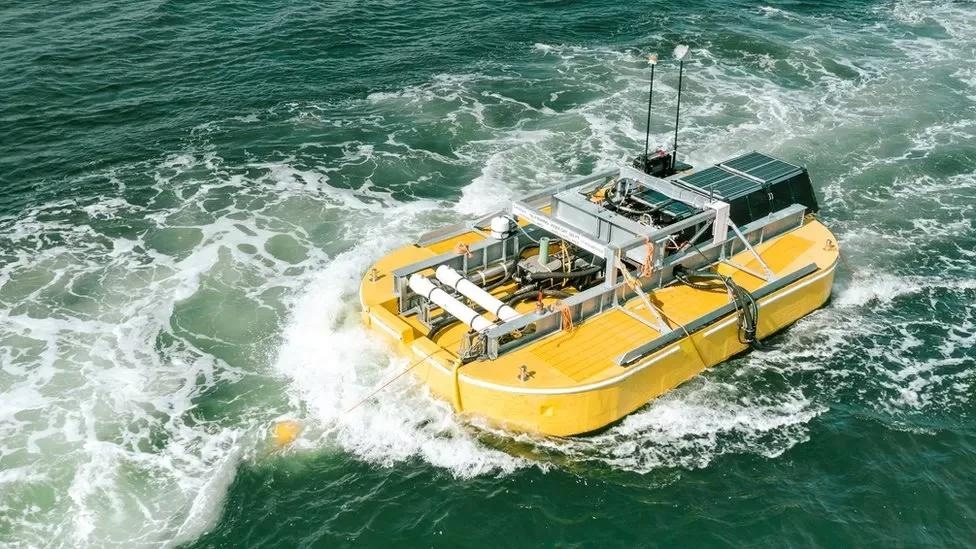Oneka Technologies, a Canadian startup, is revolutionizing sustainable water management with its wave-powered desalination technology. This innovative solution utilizes ocean wave energy to convert seawater into drinkable water, offering a zero-emission, electricity-free approach to desalination.

Image Credit: Oneka Technologies
The company's Iceberg-class unit addresses the water needs of coastal communities, industries, and resorts, supplying fresh water to 100 to 1,500 people daily. Its design is both modular and scalable, accommodating varying demands while minimizing ecological impact. This is achieved through a marine-friendly intake system and brine discharge that is only marginally saltier than seawater.
Expanding its portfolio, Oneka Technologies has introduced smaller units for emergency and small-scale use. The development of a larger Glacier-class buoy is also underway, aiming to augment water supplies significantly for broader applications.
This technology signifies a shift in desalination methods, supporting sectors from agriculture to industrial manufacturing with an eco-friendly and cost-effective approach to addressing water scarcity.
A New Wave in Desalination: Oneka's Approach
Unlike traditional shore-based desalination plants that rely heavily on energy consumption, often from fossil fuels, Oneka's innovative units harness the kinetic energy of ocean waves. This approach not only aligns with the global trend towards sustainable energy sources but also offers a more environmentally friendly solution to water scarcity.
According to the International Desalination Association, a leading global trade organization, over 300 million people worldwide depend on desalinated water. The number of desalination plants facilitating this supply has reached over 21,000, nearly doubling in the past decade.
Thus, as the global population expands and climate change increasingly strains freshwater resources, the demand for desalination plants is expected to rise further. Wave-powered desalination, like that offered by Oneka, represents a promising solution to meet this growing need sustainably.
Innovating with the Ocean's Energy
Oneka's solution involves floating desalination machines that harness wave motion to power a membrane-based filtration process. These mechanical units, operational in waves as low as one meter, are anticipated to be released on the commercial market next year. They vary in size, with the largest producing up to 49,000 liters of fresh water per day.
The ecological impact is further reduced by their brine management approach. The diluted brine, only slightly saltier than seawater, is safely released back into the ocean, minimizing ecological damage.
While Oneka's innovations present a promising solution to water scarcity, experts like Chedly Tizauoi from Swansea University stress the importance of broader measures. He emphasizes water conservation and the need to consider energy and chemical inputs in water treatment processes.
Nonetheless, the emergence of wave-powered and solar-powered desalination technologies marks a significant step in tackling global water scarcity sustainably, providing practical solutions for industries and setting a benchmark for merging environmental responsibility with technological advancement.
In a world facing water scarcity challenges, Oneka Technologies' advancements highlight the critical role of sustainable innovation in ensuring a water-secure future for all.
References and Further Reading
- The floating desalination machines powered by the waves. (2023). BBC News. [online] 6 Nov. Available at: https://www.bbc.co.uk/news/business-67237006 [Accessed 6 Nov. 2023].
- Kuzma, S., Saccoccia, L. and Chertock, M. (2023). 25 Countries, Housing One-quarter of the Population, Face Extremely High Water Stress. www.wri.org. [online] Available at: https://www.wri.org/insights/highest-water-stressed-countries.